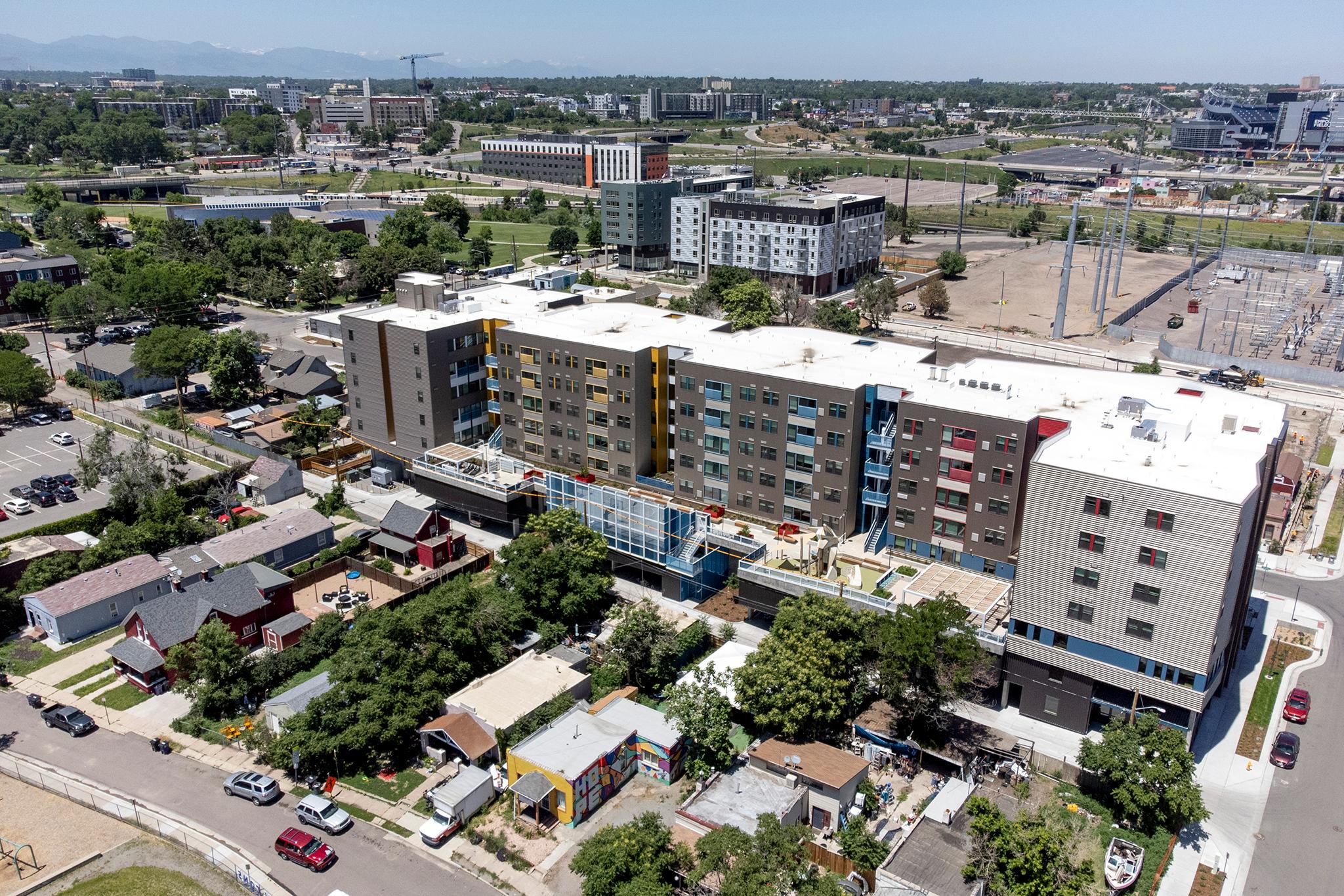Vacancy rates and rent prices are up slightly, year over year, as new construction booms in the Denver area rental market.
Roughly 24,000 apartment units of the more than 414,000 in the seven-county Denver metro area were empty at the end of 2023.
That's based on data from a quarterly report from the Colorado Apartment Association that uses research from Apartment Insights. The report looks at apartment vacancies and prices in the region, including Adams, Arapahoe, Boulder, Broomfield, Denver, Douglas and Jefferson counties.
The metro had an overall apartment vacancy rate of 5.8%, and in Denver, the rate was at 6.1%.
Generally, higher vacancy rates lead to lower rents, as the number of available units exceeds demand. When demand is higher than supply, prices rise.
After years of skyrocketing rents, the price of an apartment has stayed largely stable in recent months.
Average rent in the metro dropped by $18 in the last quarters of 2023 to $1,870 in the region, according to the Colorado Apartment Association's quarterly report. But metro rent actually rose, year over year, by $32.
Apartment vacancies are a measure of one point in time, not a reflection of how long a unit sits empty. It could be for a few days, between tenants, or years. Generally, landlords want to keep properties occupied so they can keep making money.
So why have vacancy rates risen slightly -- and will they keep going up?
A nearly record-breaking number of new units, 13,246 in total, were created in 2023, by the Colorado Apartment Association's count. Many of these are in the so-called "luxury market."
In the next few years, that trend is expected to continue, as there are currently roughly 45,000 already proposed units in the development pipeline, Rathbun said.
Around 2026, the increase in new units under construction will likely drop, according to Rathbun.
That's a reflection of a slow-down in the number of proposals for new builds caused by high interest rates that make building new projects prohibitively expensive for some developers. Banks have also pulled back on offering loans, making it harder to fund new residential construction.
In the City and County of Denver, developers are also resistant to proposing new projects under the Expanding Housing Affordability rules City Council passed in 2022. The rules were passed to put more of the burden of solving the affordable housing crisis on developers but also made creating new housing more expensive. That could lead to an even harsher drop in new construction, Rathbun argued, along with a potential increase in suburbanization.
In the future, Rathbun expects more proposals will focus on creating workforce housing rather than luxury housing.
This a trend embraced by Mayor Mike Johnston and others looking to keep workers and their families living in Front Range cities.
In new builds, developers will cut some amenities and rely on government grants and tax credits to fund these projects.
"You've just got a fundamental shift in the way that developers are looking at the market in trying to value engineer their projects in order to create workforce housing as opposed to luxury housing," he explained. "So they are looking at designing things differently. They are looking at alternative methods of construction. They are looking at perhaps de-ammenitizing some things. The reduction of amenities then allows the construction costs to be lower, which allows the rents to be lower."
Generally, more people are staying out of the housing real estate market and instead renting, and that is good news for landlords.
"The gap between buying and renting is as big as it's ever been right now," explained Rathbun. Purchasing power dropped when mortgage rates went from around 3% to upwards of 8%. "It's keeping people in the rental markets because they can't escape the rental market to go buy a home."












